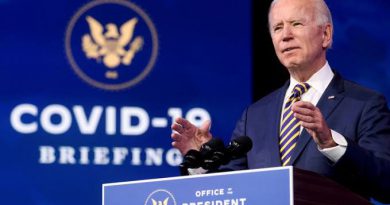Iranian President Holds Saudi-Printed Uthmani Script Quran at UN, Condemns Quran Burnings
United Nations — Iranian President Ebrahim Raisi held up a Quran, printed in the Uthmani script and originating from Saudi Arabia, during his speech at the United Nations on Tuesday, to criticize the West for recent incidents of Quran burnings and to address issues of religious freedom and Islamophobia.
“The fires of disrespect will not overcome the divine truth,” President Raisi asserted, accusing Western countries of using freedom of speech as a diversionary tactic.
He expressed concern about the rise of Islamophobia and cultural discrimination in these countries, highlighting actions such as Quran desecration and the ban on the hijab in schools.
The Iranian President’s remarks were seen as a direct reference to France, which has controversially banned Muslim girls from wearing hijabs in schools.
The Uthmani script Quran, often considered a standard and authoritative version of the Quran, has its origins in the time of the third caliph, Uthman Bin Affan. He directed a team, including Zaid bin Thabit and other companions, to prepare a single, authentic, and reliable copy of the Quran from the first written version held by Hafsa, one of the wives of the Prophet Muhammad.
Once this Uthmani script was prepared, copies were sent to various Muslim countries along with renowned reciters to teach the Quran. Over time, it became the standard and reliable script for the Quran, and all other versions were destroyed to avoid discrepancies.
This act by President Raisi reflects his commitment to defending the Quran and addressing the rising challenges of religious discrimination and Islamophobia on the global stage. It also serves as a reminder of the Quran’s universal importance in the lives of Muslims worldwide.



